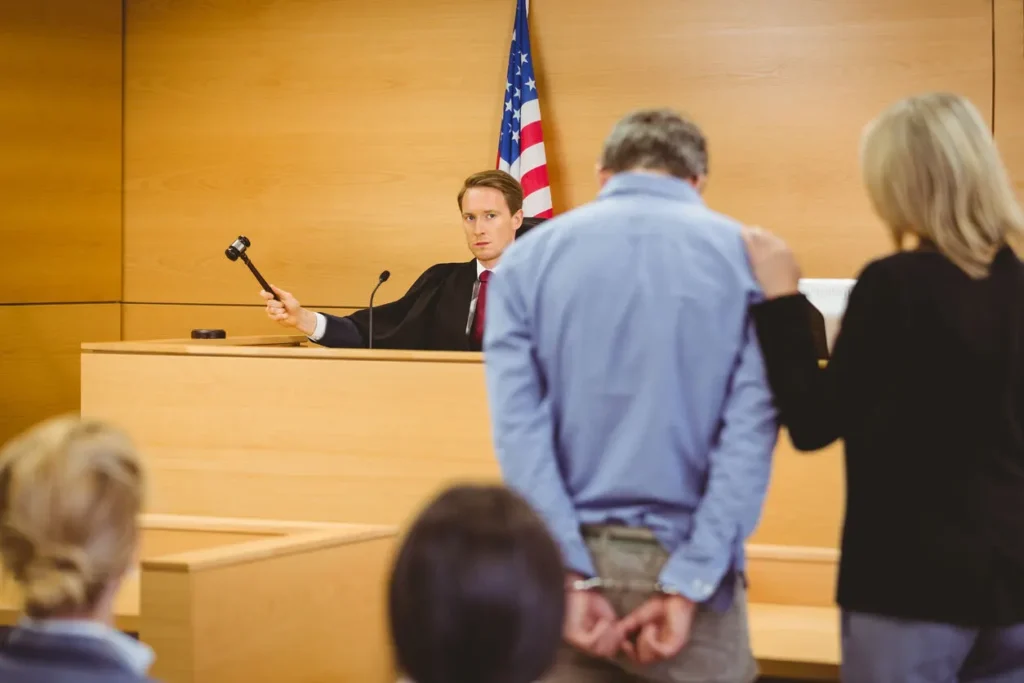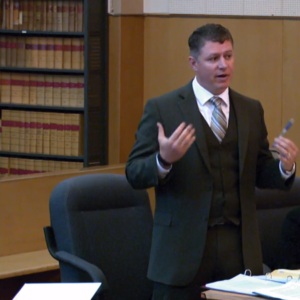If you are facing criminal charges in Oregon, the penalties you could receive depend on more than just a guilty verdict. Sentencing mitigation plays a critical role in reducing penalties, securing alternative sentencing options, and ensuring that judges understand the full context of your case.
The Law Office of Mike Arnold specializes in high-stakes criminal defense and strategic sentencing mitigation, helping clients secure the best possible outcomes.
Whether we are handling your criminal defense or if you are seeking new legal representation to understand how the sentencing process unfolds, contact our skilled Eugene criminal defense attorneys to learn more about your legal rights and options.
What Is Sentencing Mitigation in Oregon?
Sentencing mitigation is the legal strategy of presenting evidence and arguments that can influence a judge to impose a lighter sentence. This process focuses on humanizing the defendant, demonstrating remorse, highlighting mitigating circumstances, and showcasing rehabilitative efforts. Mitigation can distinguish between years behind bars and an opportunity for rehabilitation or alternative sentencing.
Our sentencing mitigation attorneys in Lane County use a multifaceted approach. We work with expert witnesses, mental health professionals, and community leaders to craft compelling arguments that justify a lighter sentence.
Why Sentencing Mitigation Matters in Oregon Criminal Cases
Oregon has some of the harshest sentencing laws in the country, including Measure 11 mandatory minimum sentences, which eliminate judicial discretion in many felony cases.
Without a strong sentencing mitigation strategy in cases that do not qualify under Measure 11, you could face:
- Mandatory prison time for serious offenses.
- Loss of professional licenses and career opportunities.
- Permanent criminal records that limit future opportunities.
- Harsh fines and penalties.
Our Eugene sentencing mitigation attorneys work tirelessly to build a defense to reduce these consequences. We help clients avoid unnecessary hardship while addressing the legal system’s concerns.
What Role Does My Past Criminal Record Play in Oregon Sentencing Mitigation?
Your past criminal record plays a significant role in sentencing mitigation, directly influencing how judges and prosecutors assess your case. However, even with prior convictions, a strong mitigation strategy can help reduce penalties and present a more favorable picture to the court.
Here’s how your record impacts sentencing and what can be done to mitigate its effects:
First-Time Offenders vs. Repeat Offenders
- First-time offenders generally have a stronger case for leniency, as the court may view them as less of a risk to reoffend. Mitigation efforts can emphasize this was an isolated mistake and highlight your positive contributions to society.
- Repeat offenders face more significant challenges, as prosecutors and judges may see them as habitual lawbreakers. However, mitigation can focus on rehabilitation, mental health treatment, or changes in circumstances demonstrating a reduced likelihood of future offenses.
The Type of Prior Convictions
- Violent vs. Non-Violent Crimes – A history of violent crimes can make mitigation more difficult, especially for offenses under Measure 11 mandatory minimums. In contrast, non-violent offenses may allow for alternative sentencing options.
- Felony vs. Misdemeanor – Felony convictions carry more weight in sentencing decisions than misdemeanors. However, older or minor felony convictions can sometimes be mitigated with evidence of reform and personal growth.
- Recent vs. Old Convictions – A long period without reoffending can demonstrate rehabilitation, while a pattern of frequent arrests may work against you. Courts may be more lenient if your last conviction was many years ago.


































